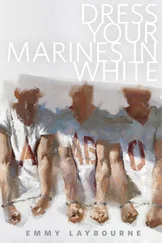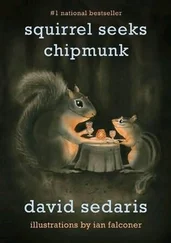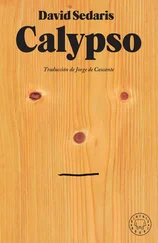Do you really think so? Really?She was putty.
My sister needed patience and understanding, but more often than not, I found myself wanting to shake her. If the oldest wasn't who she was supposed to be, then what did it mean for the rest of us?
Lisa had been marked Most Likely to Succeed, and so it confused her to be ringing up gallon jugs of hearty burgundy. I had been branded as lazy and irresponsible, so it felt right when I, too, dropped out of college and wound up living back in Raleigh. After being thrown out of my parents' house, I went to live with Lisa in her white-brick complex. It was a small studio apartment — the adult version of her childhood bedroom — and when I eventually left her with a broken stereo and an unpaid eighty-dollar phone bill, the general consensus was "Well, what did you expect?"
I might reinvent myself to strangers, but to this day, as far as my family is concerned, I'm still the one most likely to set your house on fire. While I accepted my lowered expectations, Lisa fought hard to regain her former title. The wineshop was just a temporary setback, and she left shortly after becoming the manager. Photography interested her, so she taught herself to use a camera, ultimately landing a job in the photo department of a large international drug company, where she took pictures of germs, viruses, and people reacting to germs and viruses. On weekends, for extra money, she photographed weddings, which really wasn't that much of a stretch. Then she got married herself and quit the drug company in order to earn an English degree. When told there was very little call for thirty-page essays on Jane Austen, she got a real estate license. When told the housing market was down, she returned to school to study plants. Her husband, Bob, got a job in Winston-Salem, and so they moved, buying a new three-story house in a quiet suburban neighborhood. It was strange to think of my sister living in such a grown-up place, and I was relieved to find that neither she nor Bob particularly cared for it. The town was nice enough, but the house itself had a way of aging things. Stand outside and you looked, if not young, then at least relatively carefree. Step indoors and you automatically put on twenty years and a 401(k) plan.
My sister's home didn't really lend itself to snooping, and so I spent my hour in the kitchen, making small talk with Henry. It was the same conversation we'd had the last time I saw him, yet still I found it fascinating. He asked how I was doing, I said I was all right, and then, as if something might have drastically changed within the last few seconds, he asked again.
Of all the elements of my sister's adult life — the house, the husband, the sudden interest in plants — the most unsettling is Henry. Technically he's a blue-fronted Amazon, but to the average layman, he's just a big parrot — the type you might see on the shoulder of a pirate.
"How you doing?" The third time he asked, it sounded as if he really cared. I approached his cage with a detailed answer, and when he lunged for the bars, I screamed like a girl and ran out of the room.
"Henry likes you," my sister said a short while later. She'd just returned from her job at the plant nursery and was sitting at the table, unlacing her sneakers. "See the way he's fanning his tail? He'd never do that for Bob. Would you, Henry?"
Bob had returned from work a few minutes earlier and immediately headed upstairs to spend time with his own bird, a balding green-cheeked conure named Jose. I'd thought the two pets might enjoy an occasional conversation, but it turns out they can't stand each other.
"Don't evenmention Jose in front of Henry," Lisa whispered. Bob's bird squawked from the upstairs study, and the parrot responded with a series of high, piercing barks. It was a trick he'd picked up from Lisa's border collie, Chessie, and what was disturbing was that he soundedexactly like a dog. Just as, when speaking English, he sounded exactly like Lisa. It was creepy to hear my sister's voice coming from a beak, but I couldn't say it didn't please me.
"Who's hungry?" she asked.
"Who's hungry?" the voice repeated.
I raised my hand, and she offered Henry a peanut. Watching him take it in his claw, his belly sagging almost to the perch, I could understand what someone might see in a parrot. Here was this strange little fatso living in my sister's kitchen, a sympathetic listener turning again and again to ask, "So, really, how are you?"
I'd asked her the same question and she'd said, "Oh, fine. You know." She's afraid to tell me anything important, knowing I'll only turn around and write about it. In my mind, I'm like a friendly junkman, building things from the little pieces of scrap I find here and there, but my family's started to see things differently. Their personal lives are the so-called pieces of scrap I so casually pick up, and they're sick of it. More and more often their stories begin with the line "You have to swear you will never repeat this." I always promise, but it's generally understood that my word means nothing.
I'd come to Winston-Salem to address the students at a local college, and then again to break some news. Sometimes when you're stoned it's fun to sit around and think of who might play you in the movie version of your life. What makes it fun is that no one is actually going to make a movie of your life. Lisa and I no longer got stoned, so it was all the harder to announce that my book had been optioned, meaning that, in fact, someone was going to make a movie of our lives — not a student, but a real director people had actually heard of.
"Awhat? "
I explained that he was Chinese, and she asked if the movie would be in Chinese.
"No," I said, "he lives in America. In California. He's been here since he was a baby."
"Then what does it matter if he's Chinese?"
"Well," I said, "he's got. . you know, a sensibility."
"Oh brother," she said.
I looked to Henry for support, and he growled at me.
"So now we have to be in a movie?" She picked her sneakers off the floor and tossed them into the laundry room. "Well," she said, "I can tell you right now that you are not dragging my bird into this." The movie was to be based on our pre-parrot years, but the moment she put her foot down I started wondering who we might get to play the role of Henry. "I know what you're thinking," she said. "And the answer is no."
Once, at a dinner party, I met a woman whose parrot had learned to imitate the automatic icemaker on her new refrigerator. "That's what happens when they're left alone," she'd said. It was the most depressing bit of information I'd heard in quite a while, and it stuck with me for weeks. Here was this creature, born to mock its jungle neighbors, and it wound up doing impressions of man-made kitchen appliances. I repeated the story to Lisa, who told me that neglect had nothing to do with it. She then prepared a cappuccino, setting the stage for Henry's pitch-perfect imitation of the milk steamer. "He can do the blender, too," she said.
She opened the cage door, and as we sat down to our coffees, Henry glided down onto the table. "Who wants a kiss?" She stuck out her tongue, and he accepted the tip gingerly between his upper and lower beak. I'd never dream of doing such a thing, not because it's across-the-board disgusting but because he would have bitten the shit out of me. Though Henry might occasionally fan his tail in my direction, it is understood that he is loyal to only one person, which, I think, is another reason my sister is so fond of him.
"Was that a good kiss?" she asked. "Did you like that?"
I expected a yes-or-no answer and was disappointed when he responded with the exact same question: "Did you like that?" Yes, parrots can talk, but unfortunately they have no idea what they're actually saying. When she first got him, Henry spoke the Spanish he'd learned from his captors. Asked if he'd had a good night's sleep, he'd say simply, "Hola," or "Bueno." He goes through phases, favoring an often repeated noise or sentence, and then moving on to something else. When our mother died, Henry learned how to cry. He and Lisa would set each other off, and the two of them would go on for hours. A few years later, in the midst of a brief academic setback, she trained him to act as her emotional cheerleader. I'd call and hear him in the background, screaming, "We love you, Lisa!" and "You can do it!" This was replaced, in time, with the far more practical "Where are my keys?"
Читать дальше












